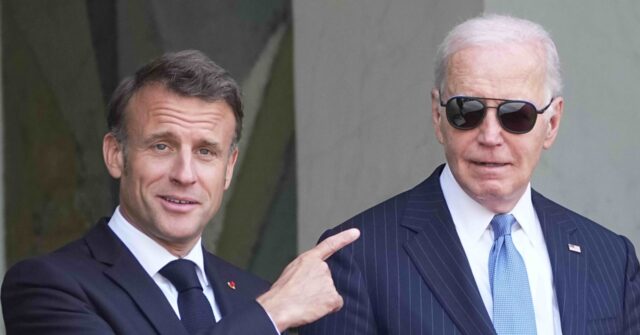On Wednesday, French President Emmanuel Macron plans to meet for the first time with some of the 15,000 Ukrainian troops that France has been training since the onset of the Russian invasion in February 2022. This meeting is significant as it will take place at a military camp in eastern France where French officers have been training a new brigade of 4,500 Ukrainian soldiers. This initiative is part of a broader strategy to enhance Ukraine’s military capabilities, particularly as the country grapples with the ongoing conflict initiated by Russia. This visit comes at a pivotal moment, with Western allies, following the leadership of Ukrainian President Volodymyr Zelenskyy, contemplating a victory plan to strengthen Ukraine’s position in the war.
Macron’s trip also reflects a shift in France’s domestic politics. The French President’s call for surprise legislative elections in June did not yield the expected results, leaving him with a minority government. This political setback has diminished his influence in domestic affairs, including the power dynamics within Parliament. The government’s survival of a recent no-confidence vote highlights the escalating challenges Macron faces from opponents, particularly as they position themselves against Prime Minister Michel Barnier’s administration. This atmosphere of political vulnerability may challenge Macron’s ability to govern effectively and respond decisively to both domestic and international issues, including the ongoing support for Ukraine.
The training of the Ukrainian Brigade No. 155, which is expected to comprise 4,500 troops, reflects France’s commitment to aiding Ukraine’s armed forces. Of the total, 2,300 soldiers are currently undergoing training in France, which includes not just infantry but also specialized units like engineers and artillery teams. Additionally, France is equipping the new brigade with advanced military hardware, including 150 armored vehicles, AMX light tanks, Caesar cannons, and other essential weaponry. This military support is pivotal, illustrating France’s active role in mobilizing resources to combat Russian aggression while simultaneously strengthening Ukraine’s defenses.
To ensure the training is relevant to current frontline conditions faced by Ukrainian soldiers, the French military has tailored the curriculum to incorporate real combat scenarios. This includes exposure to stress and noise typical of battlefield environments, as well as the use of drones that have become integral to modern warfare. The construction of training trenches mimics Ukraine’s battlefield layouts, emphasizing hands-on experience that prepares the troops for actual combat engagements. By creating these realistic training setups, the French military aims to enhance the effectiveness and readiness of the Ukrainian soldiers, who are vital in the ongoing struggle against Russian forces.
The strategic significance of friendship and support between France and Ukraine is emphasized by the extensive training efforts, with nearly 15,000 Ukrainian soldiers having been trained in France since the beginning of the invasion. Several thousand of these troops have also participated in training programs conducted in Poland, showcasing a coordinated effort among European allies to bolster Ukraine’s military capacity. This multilateral approach underscores the importance of solidarity among Western nations in the face of external aggression, highlighting an emerging coalition dedicated to supporting Ukraine and deterring further Russian advances.
In conclusion, Macron’s forthcoming meeting with Ukrainian troops symbolizes not only France’s commitment to assisting Ukraine in its defense but also reflects the complexities of domestic politics influencing international cooperation. While the training of Ukrainian soldiers represents a critical component of France’s military support, it also serves as a lens into how the ongoing conflict and shifting political dynamics challenge leaders in Europe. As Macron navigates these hurdles, both at home and abroad, the outcome of this engagement could have lasting implications not only for Ukraine’s military efficacy but also for France’s positioning on the global stage amidst the evolving geopolitical landscape.

